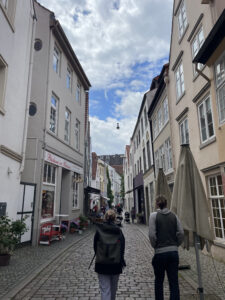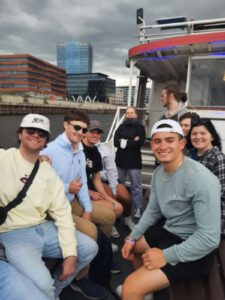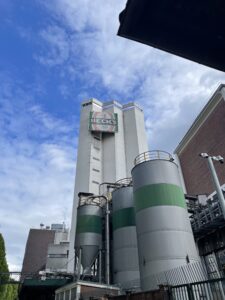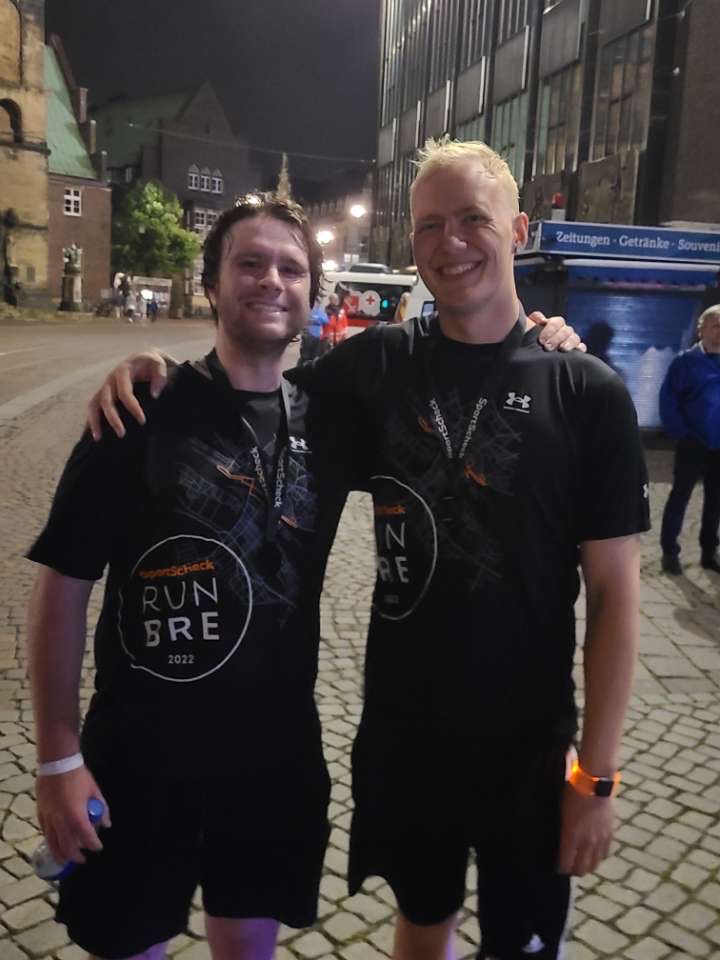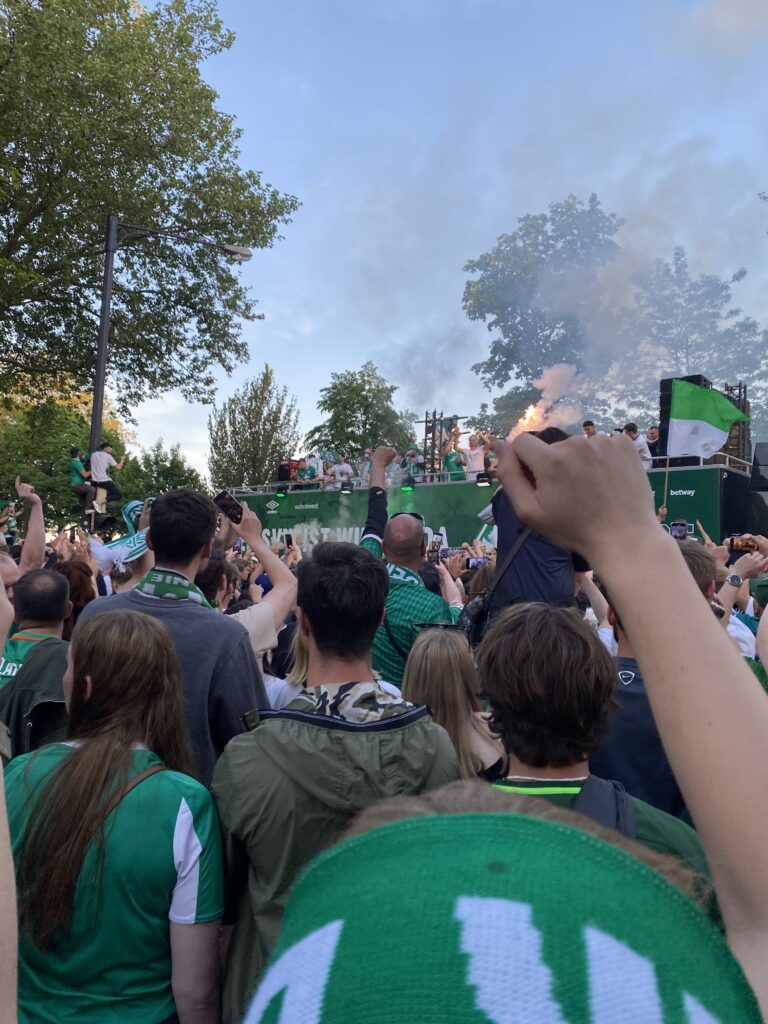At the beginning of March, we spent five days on an academic excursion in Vienna, the capital of Austria. Our Spring semester students shared their impressions of Vienna:
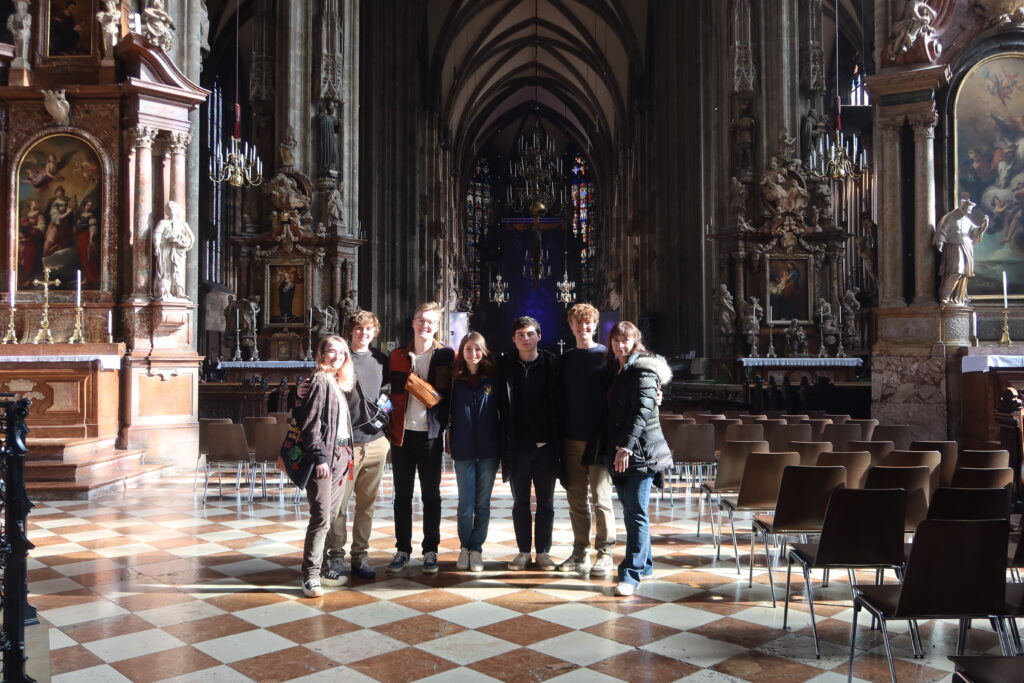
(Photo: McKenna, Grear, Noah, Abby, Riley, Gabe, and Dr. Ludwig in the St. Stephen’s Cathedral)
Abby was especially impressed with Vienna’s architecture: “One of my favorite parts of Vienna was how beautiful the architecture of many of the old buildings is, so it was super cool to see an exhibit in the Wien Museum with blueprints and modals of Stephansdom (St. Stephen’s Cathedral). The cathedral is so beautiful in person, but its scale makes it impossible to notice all the details. This museum was very memorable for many reasons, but this exhibit detailing the cathedral is definitely near the top of the list for me.”
Dickinson-in-Bremen student McKenna majors in Art History. She visited the Vienna Secession, which is an exhibition for contemporary art. McKenna notes that the secession was smaller than expected but she enjoyed her visit there, nonetheless. Her favorite was the Beethoven Fries, but she liked other pieces there as well!
Spring student Riley described the city as “enriching, inspiring, and historic.” According to Gabe, Vienna is “a must-visit city in Europe. Not only is it home to a wide variety of historically significant sights to see, but also serves as a cultural hub. For example, Saint Stephen’s Cathedral, which is a beautiful catholic church, serves visitors from all walks of life in order to introduce them to the historic cultural significance of the city.”
Grear was particularly interested in Vienna’s history: “As a practicing Catholic, I greatly enjoyed the rich religious history surrounding the city of Vienna. I found learning about the interconnectedness of the Holy Roman Empire and the Catholic Church with the Habsburg Dynasty to be particularly interesting. My attention was also grabbed by the extensiveness of Catholic/historical artifacts found in the Austrian Imperial Treasury as well as the tradition surrounding the burial of Habsburgs in the Imperial Crypt.”
Overall, our excursion was a great success!

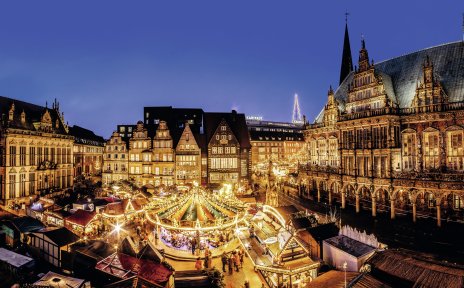
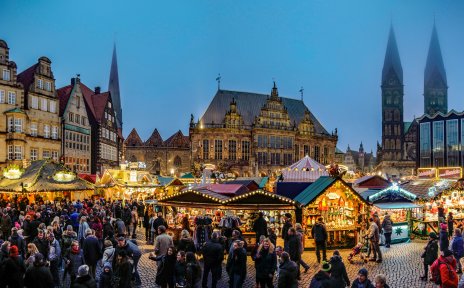
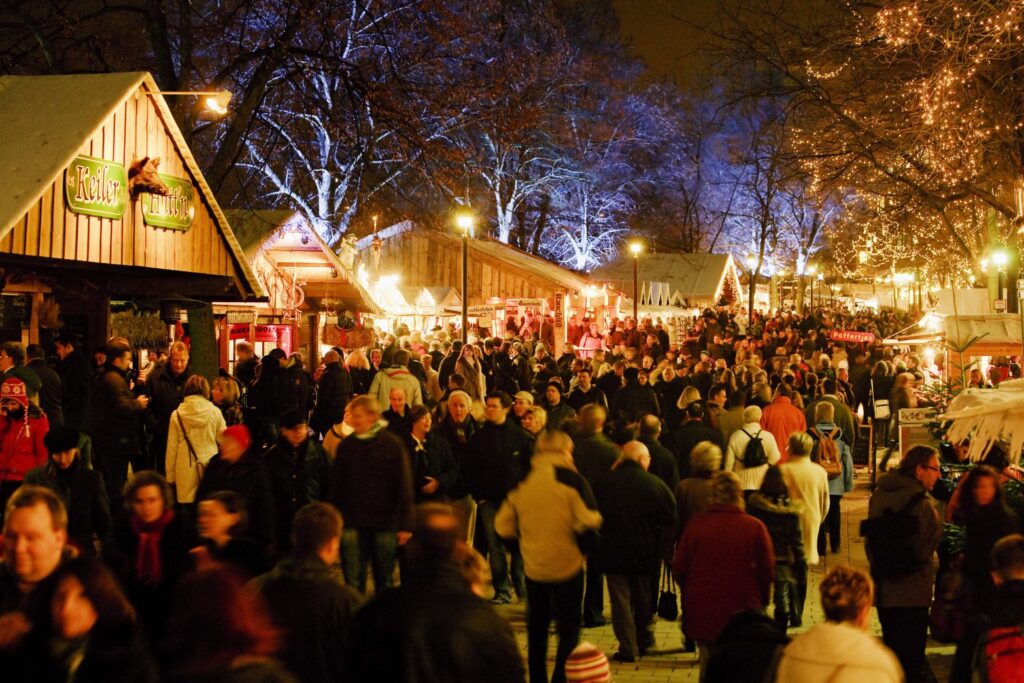
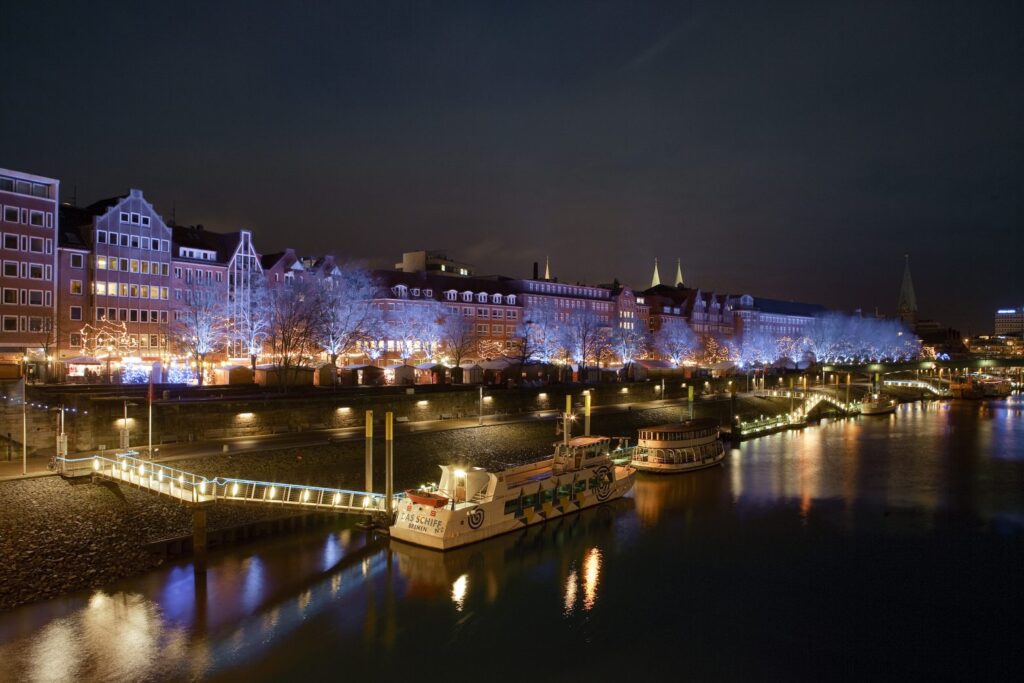
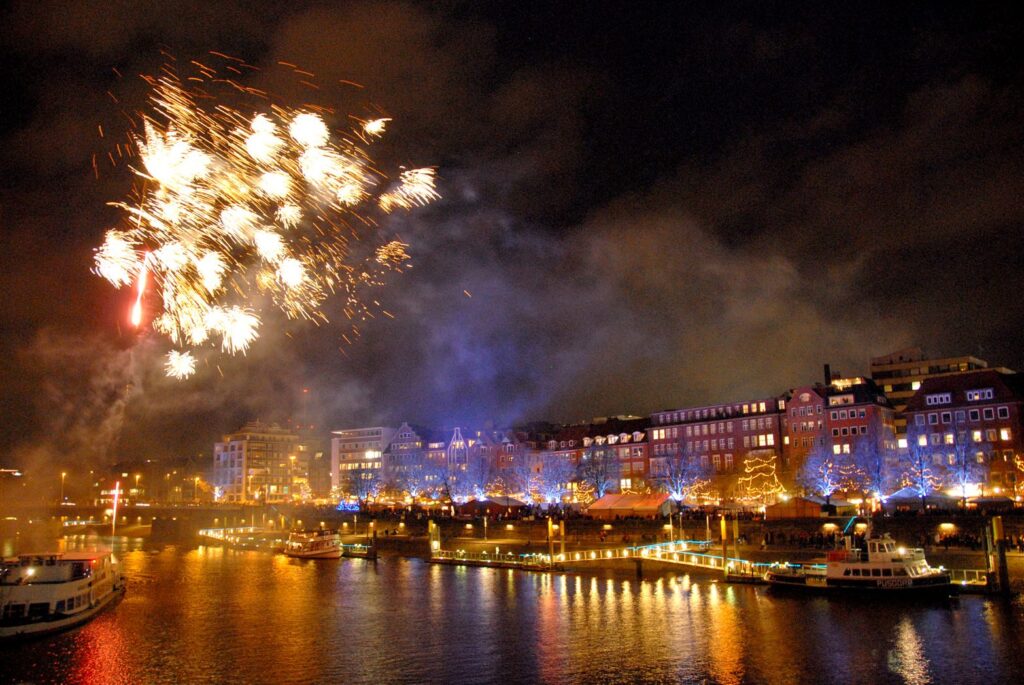
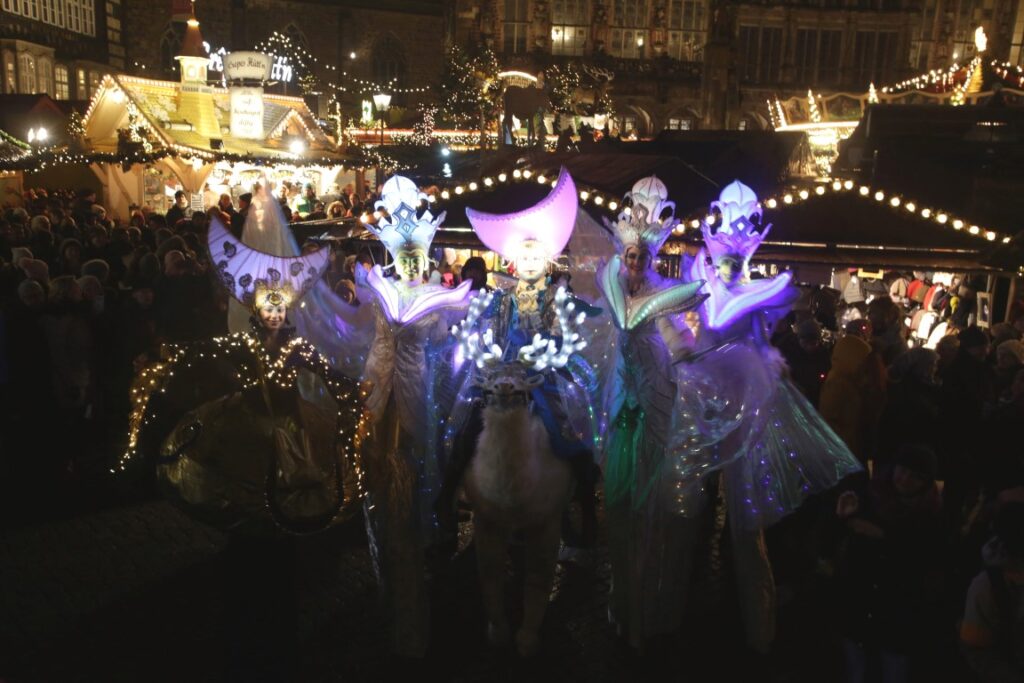
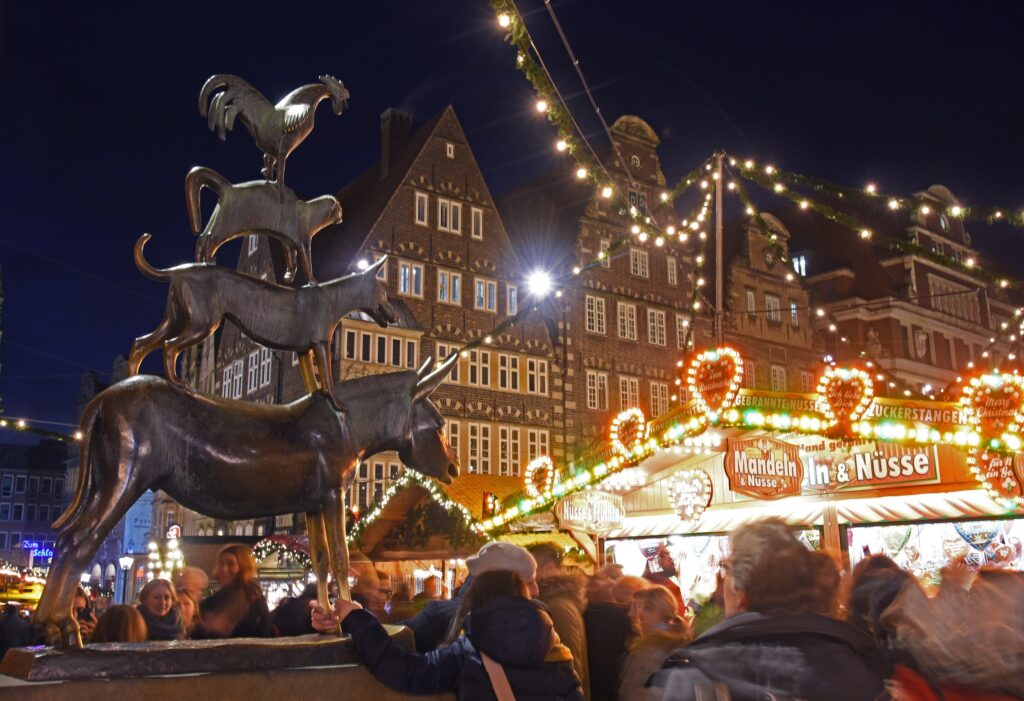
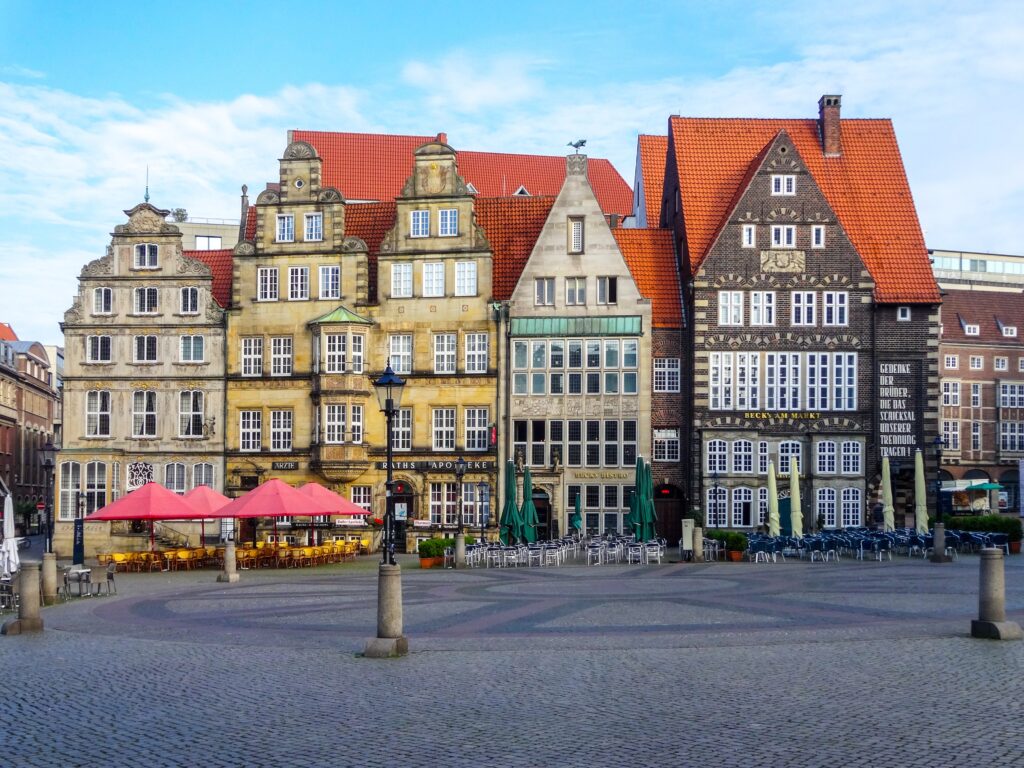
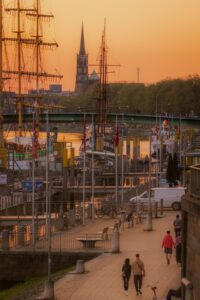
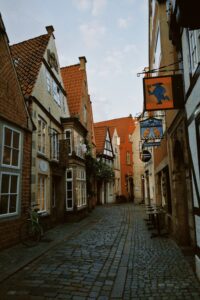
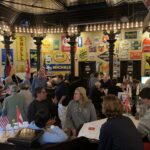
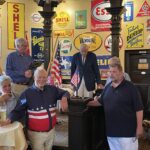

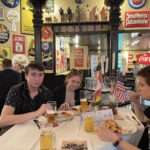
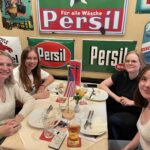
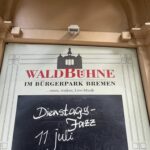
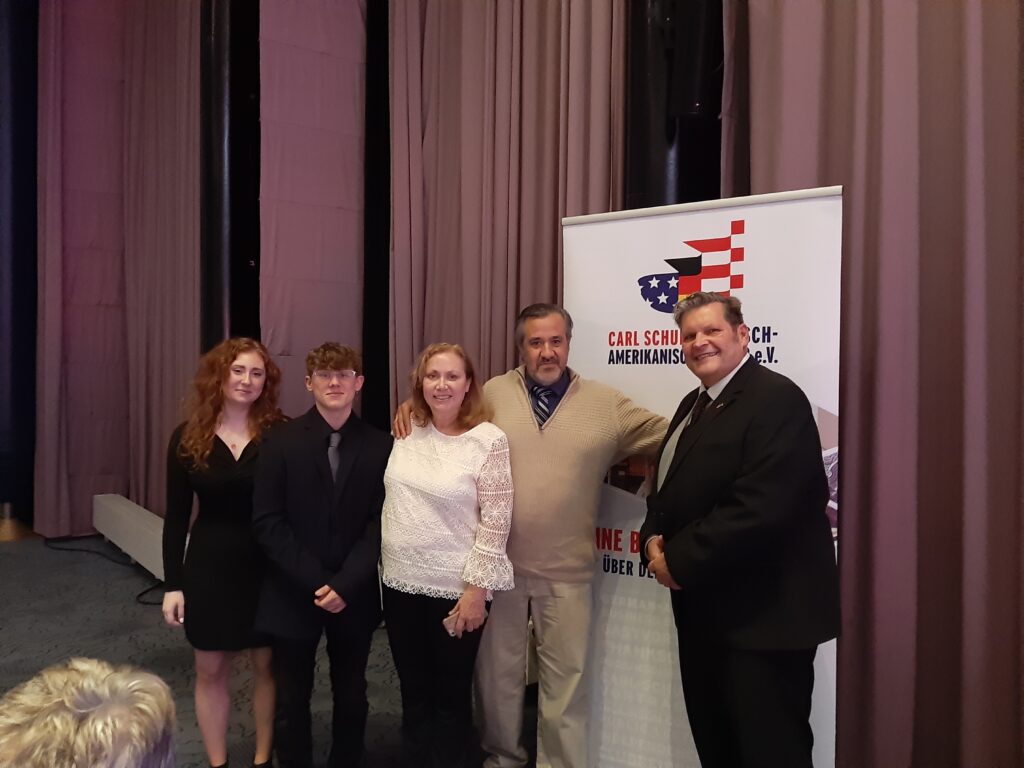
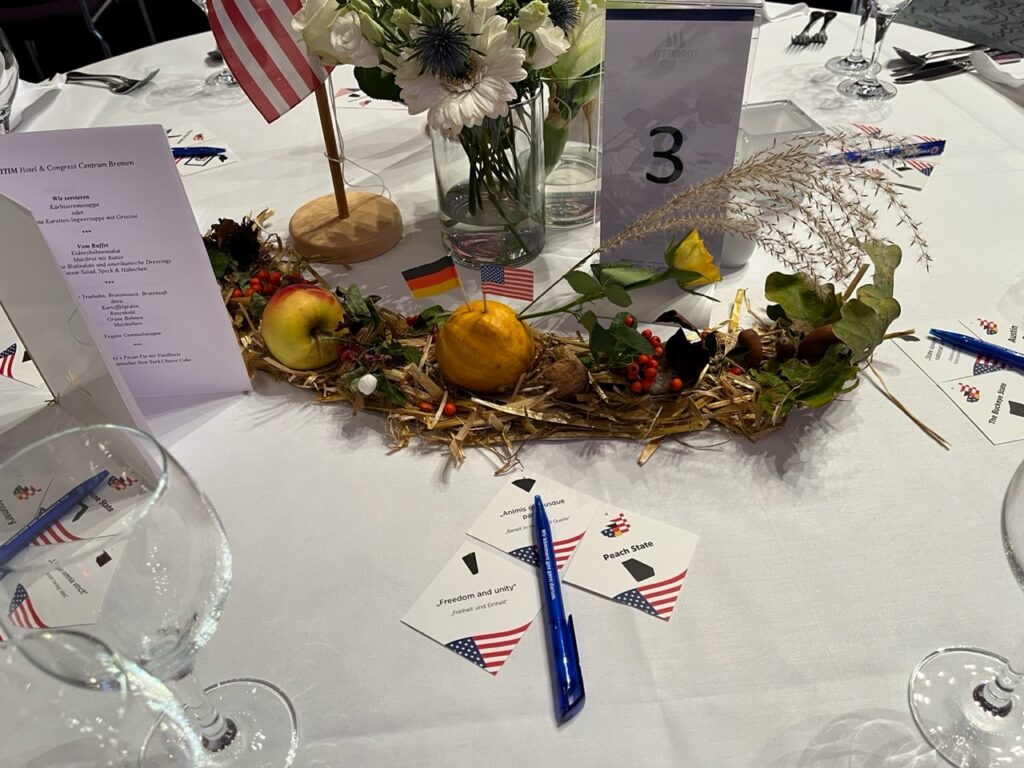
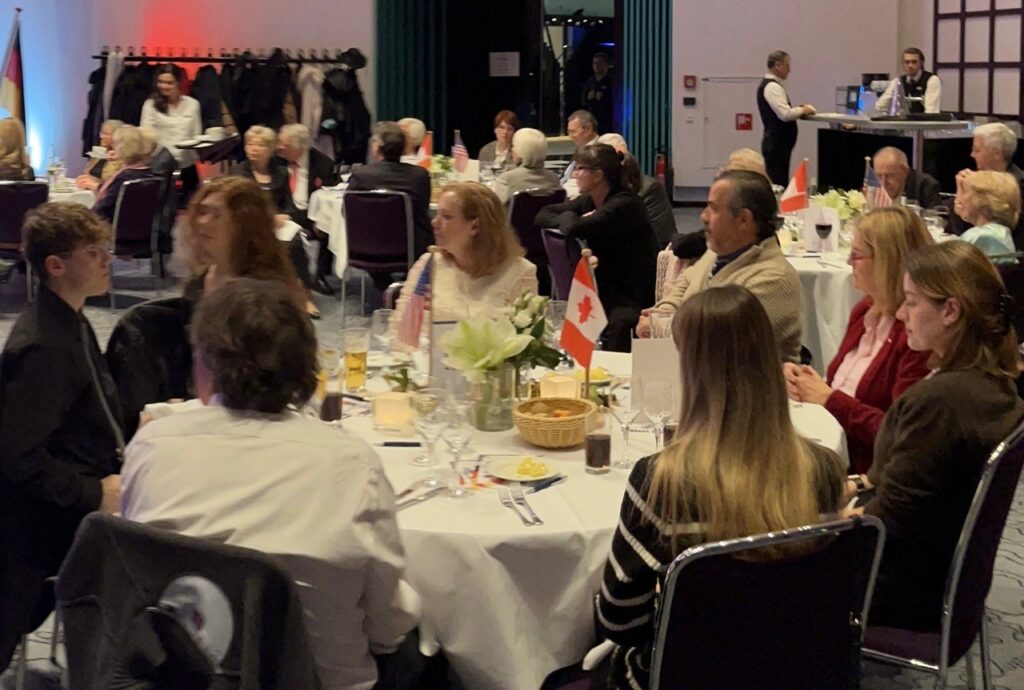
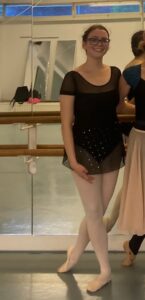 students to take for a relatively low price. Dickinson will also reimburse you up to a certain amount to take these courses. You can see a list of past/current course offerings on their
students to take for a relatively low price. Dickinson will also reimburse you up to a certain amount to take these courses. You can see a list of past/current course offerings on their 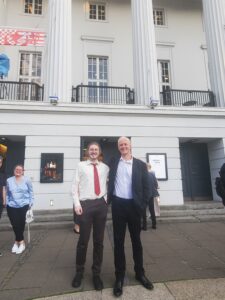 classic German musical play “Die Dreigroschenoper” (The Threepenny Opera), written by Bertolt Brecht with music composed by Kurt Weill and first performed in Berlin in 1928. This was our first time attending a theatrical performance in Bremen. Having only read a brief synopsis of the narrative beforehand, we came to find that the production was much less of what one might expect from an opera but rather a musical supported by a modestly sized jazz ensemble (with no conductor!). I wouldn’t call myself an avid musical goer, but I was enthralled by the lively assortment of characters and fantastic music.
classic German musical play “Die Dreigroschenoper” (The Threepenny Opera), written by Bertolt Brecht with music composed by Kurt Weill and first performed in Berlin in 1928. This was our first time attending a theatrical performance in Bremen. Having only read a brief synopsis of the narrative beforehand, we came to find that the production was much less of what one might expect from an opera but rather a musical supported by a modestly sized jazz ensemble (with no conductor!). I wouldn’t call myself an avid musical goer, but I was enthralled by the lively assortment of characters and fantastic music. I was stunned by the singing voices of Polly and Macheath, whose dialogue and ballads easily stole the stage whenever they appeared. In between these moving scenes Evan and I couldn’t help but chuckle at every move of the corrupt chief of police “Tiger” who broke the fourth wall by having a short interaction with the drummer, breaking one of their cymbals. I also found it heartwarming that since it was the last performance of this production, the director bade thoughtful farewells to several cast members leaving the theater company. Later that evening I couldn’t help but hum ‘Die Moritat von Mackie Messer’ to myself.
I was stunned by the singing voices of Polly and Macheath, whose dialogue and ballads easily stole the stage whenever they appeared. In between these moving scenes Evan and I couldn’t help but chuckle at every move of the corrupt chief of police “Tiger” who broke the fourth wall by having a short interaction with the drummer, breaking one of their cymbals. I also found it heartwarming that since it was the last performance of this production, the director bade thoughtful farewells to several cast members leaving the theater company. Later that evening I couldn’t help but hum ‘Die Moritat von Mackie Messer’ to myself.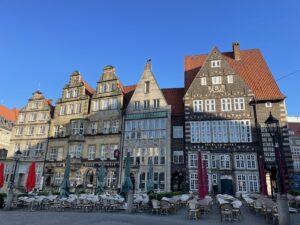
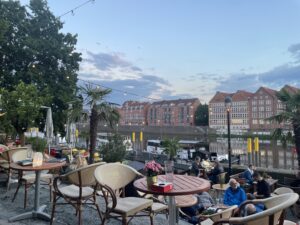 “I was initially very nervous about traveling to Germany. Not only had I never traveled out of the country, but I also didn’t know any German. Sophie’s expertise (an exchange student from Bremen University) calmed my nerves a bit, but I was still anxious about the trip.
“I was initially very nervous about traveling to Germany. Not only had I never traveled out of the country, but I also didn’t know any German. Sophie’s expertise (an exchange student from Bremen University) calmed my nerves a bit, but I was still anxious about the trip.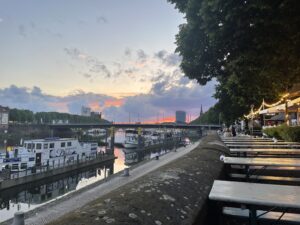
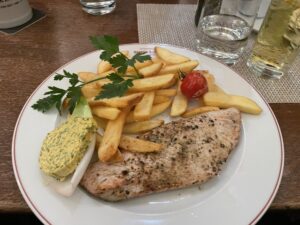 respectful manner.
respectful manner.